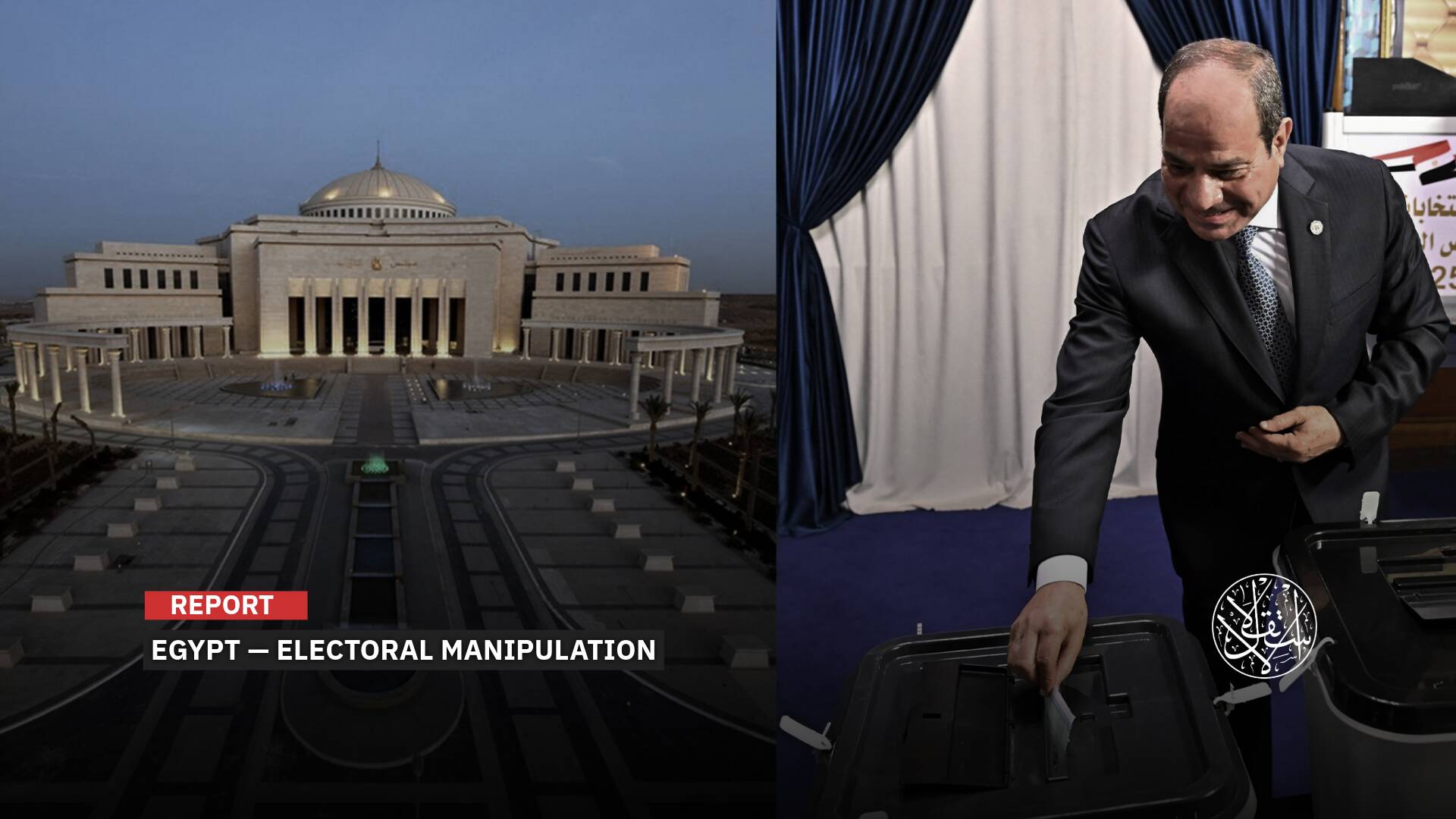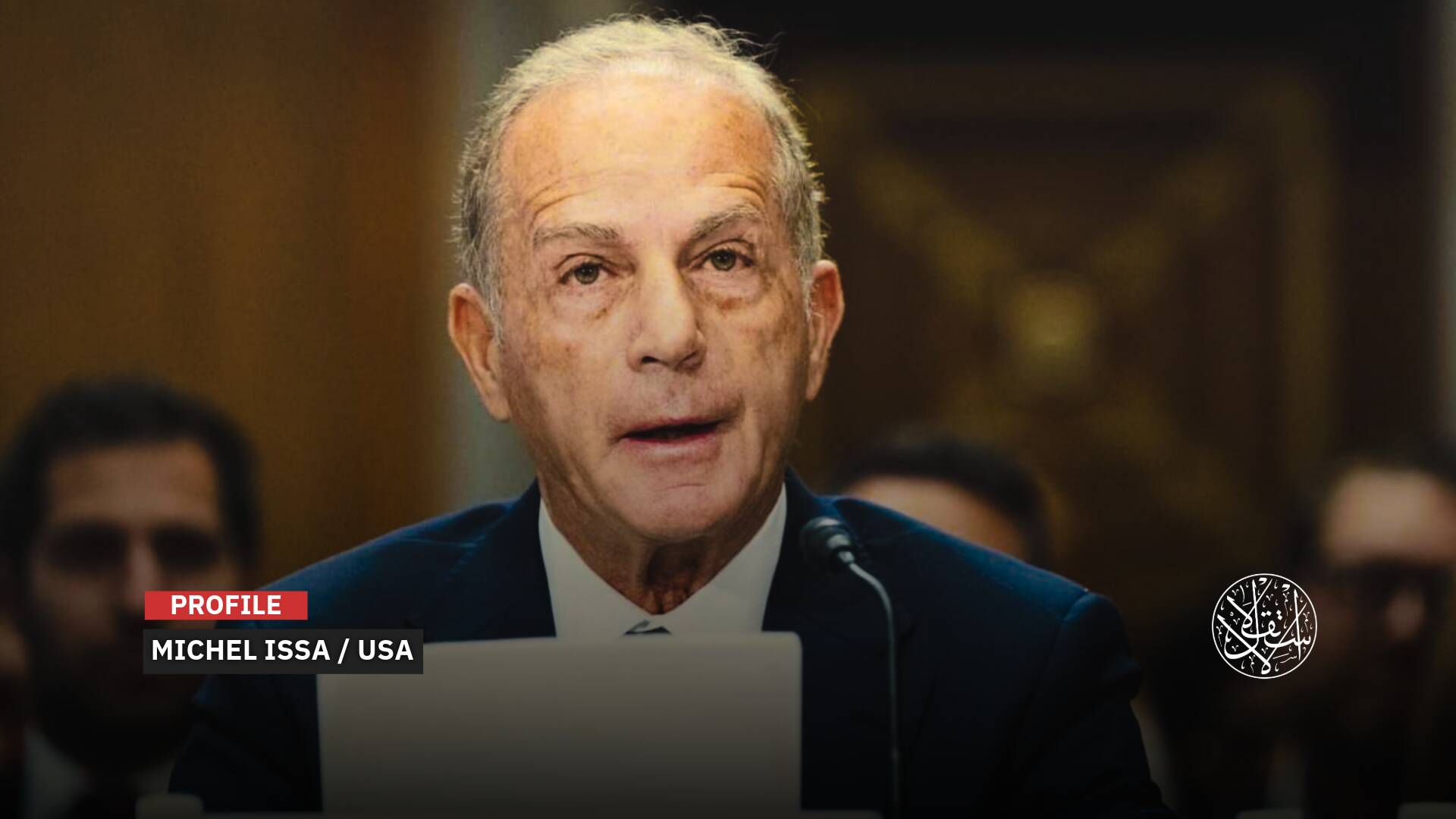Blackmail and Brinkmanship: Is Egypt on the Verge of Cutting its Gas Ties with ‘Israel’?

Egypt responded by leaning on Qatar, Turkiye, and Russia to push back against Israeli pressure.
A recent series of moves by Egypt and “Israel” has revealed a growing crisis over gas exports from “Tel Aviv” to Cairo, prompting Egypt to explore securing supplies from alternative sources.
“Israel” has cut the volumes of gas delivered to Egypt while demanding higher prices, exploiting the onset of summer and power outages amid declining production in Cairo.
In response, Egypt has turned towards Qatar, Turkiye, and Russia to counter Israeli political and economic pressures and its leverage over Cairo, amid expert calls to wean the country off “Tel Aviv’s” gas.
Recently, Egypt moved to strike gas deals with Qatar and signed agreements with four international firms—including Turkish and German companies—to lease liquefaction vessels, while also seeking to boost domestic production, after its national security became increasingly dependent on the occupier.
Since January 2020, “Israel” has become a primary supplier of natural gas to Egypt, reversing a previous dynamic where it imported gas from Cairo until 2012.
That agreement was terminated following the 2011 revolution and a decline in Egypt’s own production.

Israeli Plans
The Egyptian government’s decision to cut natural gas supplies to fertilizer and methanol factories by 50 percent for 15 days—citing shortages in imports from “Israel”—is not the first of its kind but the third since the outbreak of war in Gaza in October 2023.
The reduction, attributed to “maintenance work at the Israeli gas field,” as reported by Asharq Bloomberg on May 19, 2025, has been the official explanation given on all three occasions.
The move is set to reduce the production capacity of cement companies for two months, according to a government source who spoke to al-Shorouk newspaper on May 20, 2025.
The first disruption to Egyptian factories occurred on October 9, 2023, just two days after the outbreak of the war in Gaza, when Israeli gas supplies were completely halted, before exports gradually resumed.
The second disruption came on October 29, 2023, when the Egyptian cabinet officially announced a gradual reduction of Israeli gas exports to Egypt—from 800 million cubic feet per day in July 2023 down to zero—following the outbreak of the Gaza war.
At that time, the Egyptian Ministry of Petroleum cut natural gas supplies to fertilizer manufacturers by between 20 and 30 percent.
However, “Israel” resumed pumping gas in limited quantities in November 2023.
The third disruption occurred in May 2025, amid a cooling of relations between Cairo and “Tel Aviv” and rising Israeli accusations that Egypt was violating the Camp David accords and preparing for war. This too was accompanied by reduced gas supplies to fertilizer companies.
Egypt began importing gas from “Israel” for the first time in 2020, under a $15 billion deal between the American company Noble Energy (acquired by Chevron in 2020) and the Israeli firm Delek Drilling.
Egypt’s gas imports from “Israel” more than tripled within three years, rising from 2.2 billion cubic metres in 2020 to 8.6 billion in 2023, with daily volumes increasing from 700 to 850 million cubic metres, before surging to over one billion cubic metres per day in April 2025.
Experts viewed this development, alongside the head of the regime Abdel Fattah el-Sisi’s announcement of Egypt’s transformation into a regional hub for gas exports—both Egyptian and Israeli—through its liquefaction plants in Idku and Damietta, as a strategic gain for “Israel.”
“Tel Aviv” cannot export its gas at an economical price, nor does it possess the necessary pipelines for direct export, relying instead on Egyptian liquefaction plants.
At the time, politicians warned that tying Egypt’s national security and industrial infrastructure to “Tel Aviv” posed a serious strategic and security risk—warnings that were largely ignored by the authorities.
As “Tel Aviv” repeatedly reduced — and at times completely halted — gas supplies to Egypt, despite Cairo’s growing dependence and expanding contracts, concerns over political and economic blackmail began to surface.
This coincided with escalating tensions between Egypt and “Israel” over the Gaza war, as “Tel Aviv” demanded more than eight dollars per million British thermal units, while the market price hovered between four and five dollars.
Under previous agreements, the price of Israeli gas supplied to Egypt stood at around $6.70 per million British thermal units, based on the initial $15 billion deal for 64 billion cubic meters.
However, in April 2025, “Tel Aviv” sought a 25 percent price hike in ongoing contracts.
This would mean a price increase to approximately $9.40 per million British thermal units, according to Israeli media, in breach of previous agreements.
A senior Egyptian government official told Asharq Bloomberg on 19 May 2025 that “Israel” had decided to cut gas exports to Egypt by 20 percent over the upcoming summer, from June through September.
He said Israeli gas-exporting companies had informed the Egyptian side that current supplies, estimated at around one billion cubic feet per day, would be reduced to 800 million cubic feet per day during the coming summer.
On May 19, 2025, the American network CNN also cited an Egyptian government source stating that Israeli gas supplies to Egypt had already begun to decline from that day, dropping by as much as 500 million cubic feet per day.
The reduction was attributed to maintenance work in the Israeli gas fields and expansion efforts on the Leviathan field’s pipelines, aimed at boosting the volume of gas supplied to Egypt.
Egypt had been seeking to increase its imports of Israeli gas by 58 percent by mid-2025, with plans to raise the flow to 1.5 billion cubic feet per day — roughly a quarter of the country’s domestic demand of six billion cubic feet.
Ironically, on February 16, 2025, Egypt signed a new deal to import an additional 4 billion cubic metres of natural gas over the next 11 years from the Tamar field, jointly owned by “Israel,” the U.S., and the UAE, with deliveries scheduled to begin in July 2025 — coinciding precisely with “Israel’s” decision to cut its gas flows rather than increase them.
Meanwhile, the energy platform MEES reported on 16 May 2025 that Egypt’s imports of Israeli gas had peaked in April 2024, reaching a record high of 1.08 billion cubic feet per day.

Extortion and Pressure
But just one month later, “Israel” announced a reduction in supplies to 800 million cubic feet per day, citing maintenance work on its gas platform.
At the end of 2024, right-wing Israeli parties had called for cutting gas supplies to Egypt altogether, accusing Cairo of mobilising forces in Sinai and violating the Camp David accords amid “Israel’s” ongoing war in Gaza, Lebanon, and with Iran.
Leaders of some of these parties argued that gas supplies to Egypt should be cut off “to meet and secure Israel’s own needs,” raising pressing questions about how Cairo would respond if such a scenario were to unfold.
On December 11, 2024, Srugim published a striking report titled, “It is surprising that Egypt asked Israel for help.”
The report stated that "Egypt was forced to seek assistance from Israel to manage a gas crisis threatening a return to widespread power outages across the country."
Egyptian experts described the reduction in Israeli gas shipments, coinciding with the onset of summer and demands for higher supply prices, as clear Israeli blackmail—using the recurring excuse of repairs and routine maintenance.
They viewed this as one of “Israel’s” tactics to evade its contractual obligations, aiming to avoid penalties for breaching the gas supply agreements.
Egyptian economic analyst Mostafa Abdelsalam said the timing of “Israel’s” reduction of gas supplies to Cairo signals the start of an active policy of blackmail.
Speaking to Al-Estiklal, he explained that cutting gas deliveries—just as Egypt has become entirely reliant on Israeli supplies amid a sharp decline in domestic production and during the summer months, when industrial and power sectors are most vulnerable—will disrupt the industrial landscape and cause widespread power outages, underscoring the clear intent behind this pressure tactic.
He pointed out that the blackmail began when Egypt requested an increase in gas supplies for June and July 2025 to meet rising energy demand during the summer months.
In response, “Tel Aviv” demanded a price hike of no less than 40%, in clear violation of the terms of the original agreements signed in 2018 and thereafter, which remain in force.
This move unmistakably signals “Israel’s” exploitation of Egypt’s urgent need for gas to power electricity plants, fertiliser factories, and other industries as the summer approaches.
He said that due to Israeli blackmail, the Egyptian government was forced to cut natural gas supplies to fertiliser and methanol factories by 50% for 15 days, severely disrupting their operations and leaving them at “Israel’s” mercy.
Abdel Salam noted that “Tel Aviv” is playing games, using the excuse of scheduled maintenance on export pipelines lasting two weeks as a pretext to evade its contractual obligations and avoid penalties stipulated in the gas supply agreements.
The analyst warns that the gravity of “Israel’s” actions lies in exposing how tying Egypt’s energy security to a supplier within the occupying state is “extremely dangerous and a direct threat to Egypt’s national and economic security.
He argues that the solution lies in diversifying Egypt’s energy imports from Arab and foreign countries, boosting domestic production, and breaking free from dependence on Israeli gas — escaping its blackmail, pressure, and the looming risks to national security.

Looking for an Alternative
Amid this Israeli blackmail, Cairo began taking gradual steps aimed at weaning itself off — or at least reducing its heavy reliance on — Israeli gas, on which it had become increasingly dependent as its own production declined.
The most notable of these moves included securing long-term gas supply deals with Qatar and Cyprus, alongside signing nearly a dozen temporary agreements with foreign companies supplying the fuel.
Additionally, Egypt has leased floating liquefied natural gas (LNG) units — or floating gas processing stations — from several countries, notably Turkiye and Germany.
On May 12, 2025, the Egyptian Ministry of Petroleum confirmed that Cairo is negotiating with Qatar to secure natural gas supplies through long-term contracts, aiming to meet domestic demand ahead of the summer months.
The ministry stated that this move aims to avoid shortages in the natural gas supplies crucial for Egypt’s power plants, implicitly referencing the disruptions from “Israel.”
On May 12, 2025, Bloomberg noted that Cairo’s intention to secure supplies from Qatar through long-term contracts, alongside extending leases on floating LNG units for up to a decade, signals a shift towards sustained reliance on imported natural gas.
Cairo has also signed an agreement with Cyprus to significantly boost its gas supplies, with gas to be piped from Cyprus’s two largest offshore fields — Kronos in the southwest and Aphrodite in the southeast — directly to Egypt.
Energy platform MEES reported on May 16, 2025, that Cairo has inked four agreements for floating storage units, aimed at enhancing its capacity to import liquefied natural gas amid declining domestic production and rising energy demand.
Since June 2024, Egypt has operated the “Hugh Galleon,” a floating storage and regasification unit with a capacity of 750 million cubic feet per day, stationed in Ain Sokhna. The country plans to commission four additional floating units.
Among them, the state-owned Egyptian Natural Gas Holding Company (EGAS) signed a lease agreement with Germany for a unit with a capacity of 174,000 cubic meters, further strengthening Egypt’s infrastructure for importing liquefied natural gas.
The purpose of the floating regasification units and ships is to receive imported LNG shipments and convert them back from their liquid state into natural gas, ready for consumption.
This process accelerates the delivery of gas to factories and power plants, aiming to prevent a repeat of widespread blackouts in Cairo.
At the same time, Egypt has sought to boost its own production by intensifying and accelerating drilling and exploration programs, improving contract terms with foreign companies, and ensuring timely payments to encourage further investment.
In a separate report on May 16, the energy platform MEES confirmed that Egypt has signed deals with international companies to boost gas and oil production after improving contract terms.
It highlighted that American company Apache has made significant gains in gas output in Egypt and expects further increases by the end of 2025.
This has eased the pressure on Cairo, which has suffered a 40 percent drop in gas production since late 2021.
Egypt requires around 6.2 billion cubic feet of gas daily, while domestic output currently provides only 4.4 billion cubic feet, increasing its reliance on energy imports.










